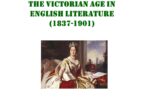Thomas McFarland’s aim in this article is to show the interrelationship between the fields of
literature and philosophy. In doing this, McFarland begins by asserting that philosophy is the
most important cultural enterprise which relates with literature. He corroborates his point
with reference to Samuel Taylor Coleridge’s view that no man can be a great poet who is not
a profound philosopher. McFarland also makes reference to Plato who despite his eviction of
poets from his ideal commonwealth agrees that a poet may earn the epithet “philosopher” if
he conforms to certain criteria. This, Plato avers because all great arts would require
discussion and high speculation about nature; and this particular feature also applies to the
nature of philosophy.
However, the writer notes a paradox in Plato’s attitude towards poetry on the one hand, and
towards poets on the other hand. It is at this point that the writer brings in Giovanni
Boccaccio’s and Philip Sidney’s critical thoughts about Plato. Boccaccio and Sidney,
contrary to the views of some others, rebuff the idea of Plato’s eviction of poets in his ideal commonwealth. They opine that great poets were not just ordinary citizens of Plato’s republic
but were highly influential and regarded as princes and rulers. Citing Plato’s dialogue
called Ion,these critics assert that Plato only banished the abuse of poetry and not poetry
itself.
Indeed, a careful study of Plato’s Republic reveals that contrary to the speculations of writers
like Stephen Gosson who wrote an attack on poetry titled School of Abuse, saying that even
Plato banned poets from his republic, we discover that Plato merely establishes a censorship
for the writing of fiction. In delineating the kind of literature that will suit the young minds in
his republic, Plato asserts thus: Then the first thing will be to establish a censorship of the
writers of fiction, and let the censors receive any tale of fiction which is good, and reject the
bad; and we will desire mothers and nurses to tell their children the authorised ones only.
And so, in spelling out the principles to which poets must conform, Plato states that God, as
represented in literary works, must be represented as the creator of good only and not of evil;
that no poet should depict the gods as capable of transforming from one form into another,
among other principles (18, Republic, in Hazard and Leroy). It is only when a poet fails to
conform to these principles that, according to Plato: We shall be right in refusing to admit
him into a well-ordered State, because he awakens and nourishes and strengthens the feelings
and impairs the reason. And so, we conclude that Plato did not ban poetry but rather the
abuse of poetry or in other words, poetry that does not conform to the prescribed standards of
the State.
Having established the foregoing clarification about Plato’s attitude towards poets and poetry,
McFarland goes on to show the interrelationship between literature and philosophy, taking
his bearing from the field of the latter. He states that the term “philosophy” may be
understood in two ways, namely, positivist/analytic conceptions and
phenomenological/existential conceptions. Whereas the former is concerned with scientific
accuracy of what is investigated, the latter favours mental constructs, thereby foregrounding
the imagination of the literary artist. Hence, the latter has much relevance to literature.
In the light of this distinction in the perception of philosophy, arguments and counter-
arguments of two parties, vis-à-vis the interrelation between literature and philosophy, are
brought to the fore. McFarland designates one of these parties the systolic motion, with F.R
Leavis and Matthew Arnold as representatives; and the other, the diastolic movement, with
Samuel Coleridge as representative. These parties differ on whether or not there is a common
ground between literature and philosophy.
Coleridge believes that literature and philosophy tend to exhibit some common ground.
Illustrating how literature and philosophy intermingle, Coleridge describes poets like William
Shakespeare and William Wordsworth, whose works combine philosophy and poetry, as
“philosophic poets”; and philosophers like Plato, whose philosophical thoughts are bedecked
in poetic style, as “poetic philosophers” (27). This implies that the synthesis of literature and
philosophy can either be by rendering a body of thought in the language of a poem – an in the
case of Alexander Pope’s Essay on Man or Leopardi’s Operette morali – or by making
poetic or literary statements that engages questions of meaning and being – as in Wallace
Stevens’ Sunday Morning or Fedor Dostoevsky’s The Brothers Karamazov. Thus, in the
words of Ernst Cassirer and Friedrich Schiegel, as cited by McFarland, Shakespeare and
Wordsworth philosophise poetry while Plato poeticises philosophy. However, a critic like
A.C Bradley decides to steer a middle course. With his focus on William Wordsworth whose
works Coleridge considers philosophical, Bradley concurs that Wordsworth’s highly
imaginative works influenced philosophers like Kant, Schelling, Hegel and Schopenhauer.
From the discourse, we notice that Bradley, Arnold, and Leavis attempt do not seem to
directly acknowledge the interrelationship between poetry and philosophy. Arnold is quoted
to have said of Wordsworth that, “his poetry is the reality, his philosophy… is the illusion”
[sic] (28). By this statement, Arnold covertly concedes the blend between philosophy and
poetry in Wordsworth’s works but has merely chosen to overtly acknowledge only their
poetic content/value. In the same relation, Bradley is also quoted to have said that
Wordsworth “reflected deeply and acutely” and that “His poetry is immensely interesting as
an imaginative expression of the same mind which, in his day, produced great German
philosophies…” (28). Again, Bradley, indirectly acknowledges this interconnection between
literature and philosophy. After all, philosophy is has to do with deep and acute reflection
about life.
For McFarland, however, these varied opinions only point at and strengthen the fact that
literature is contiguous with philosophy; hence the continuum of philosophy and literature
which is mainly geared towards the understanding of life. MSC Okolo (2007) puts it clearer
by stating that essentially, literature and philosophy are theoretical disciplines whose interests
lie in the understanding of human life. But whereas philosophy’s method of making us
understand our world is through the examination and clarification of ideas, literature’s
achieves the same goal by using words to invent dialogue, character and plot (13).
McFarland then explains the difference between literature and philosophy. This difference
lies in the reception and evaluation of these two enterprises. In terms of the evaluation of
literature and philosophy using theories, he says, whereas a look from philosophy toward art
generates aesthetics, a look from art toward philosophy creates critical theory or theory of
literature (34). In a further explication of the interplay between literature and philosophy
through the phenomenological movement, the writer brings to bear the concept of literary
theory, a concept which he says stands between the theories of literary critics and the theories
of philosophers. Literary theory, as he explains, is produced by critics rather than by
philosophers. However, he notes that the nature of literary theory is quasi-philosophical.
Some examples of this mode include Northrop Frye’s Anatomy of Criticism, Philip
Sidney’s Defence of Poesie, Percy Bysshe Shelley’s Defence of Poetry etc. These works,
he describes as philosophical in direction, but literary in origin (39). In this article,
McFarland has succeeded in delineating the two separate fields of philosophy and literature
with a view to foregrounding their points of interrelatedness/ convergence. This goes to show
how one area of study becomes relevant in the development and understanding of another.
Consequently, we posit that interdisciplinary study is the fulcrum of scholarship.






